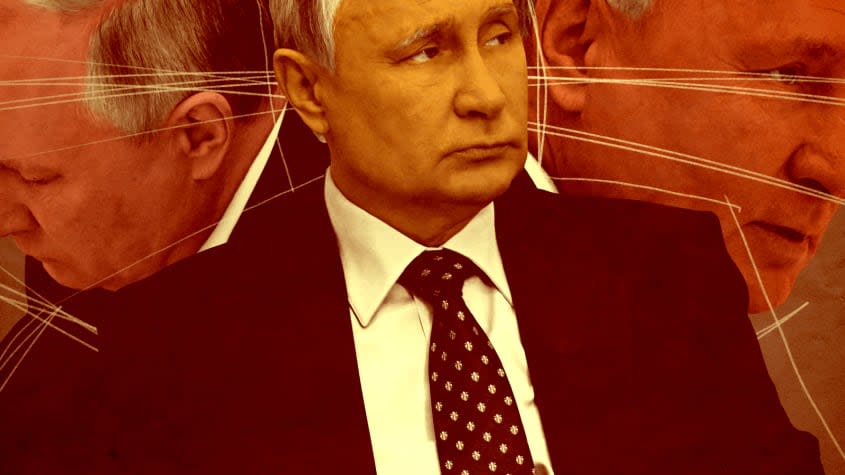Is negotiation with Putin over Ukraine even possible?

- Oops!Something went wrong.Please try again later.
Politicians and policymakers can debate whether Russia has already invaded Ukraine or has merely initiated a "minor incursion" along a disputed border. But outright war between the two countries now appears far more likely than not — and that raises questions about diplomacy. Why has it failed? Was a better outcome ever possible?
In a fruitfully provocative short essay titled "Negotiating with Madmen," foreign policy analyst Damir Marusic answers the second question emphatically in the negative. Attempting to negotiate with Vladimir Putin may well have been pointless from the start.
Marusic begins by examining the rationalist approach to war, which considers armed conflict self-evidently bad for all parties involved. Viewed in this way, the outbreak of hostilities appears inevitably to be a function of mistakes — in particular, "misunderstandings, missed signals, and a regrettable tendency for people not to listen to each other." This view also implies that continuing to seek a diplomatic solution to conflict is always reasonable, since "clearer heads" may "eventually prevail."
But what, then, should we make of Putin's Monday speech about Russian and Ukrainian history? On the one hand, it offered a wildly tendentious account of the past. On the other hand, as Marusic points out, "as an argument taken on its own terms," the speech "was not incoherent. Putin was not being irrational." He was offering an alternative view of the world that explains why he thinks war, in this case, is worth the cost.
This points to what might be "a fundamental irreconcilability in worldviews," which Marusic suggests was also the case when the world confronted Adolf Hitler's rise to power in Germany. The American president, Franklin D. Roosevelt, immediately recognized that Hitler would inevitably end up on a collision course with the liberal West. As FDR put it in 1933, Hitler would "challenge us," among other reasons, because his "black sorcery appealed to the worst in men," and this appeal could prove an enduring motivation to actions that are otherwise inexplicable.
Marusic's point isn't to draw a facile parallel between Putinism and Nazism. It's simply to suggest that sometimes starting principles and first commitments cannot be bridged through negotiation. If Putin really believes what he said about Russian and Ukrainian history on Monday, then it's possible and even highly likely that no amount of negotiation could lead to a resolution of the conflict that now seems to be hurtling toward all-out war.
That may well be true, though I'd prefer it be used to temper hopes for diplomacy rather than to encourage the scuttling of such efforts altogether. You never know for sure the effort will fail until you try, and keep trying. And as my colleague Noah Millman has recently suggested, the very attempt to avoid conflict can enhance the perceived legitimacy of resorting to force down the road.
So by all means, let's keep talking to Putin. But let's not delude ourselves into thinking we'll be at all likely to bridge the chasm that divides us.
You may also like
Live stream of planes landing at Heathrow Airport during storm draws surprisingly big online crowd
Watch a Clydesdale recover from injuries in Budweiser's new Super Bowl ad
Tensions between the U.S. and Russia just took their darkest turn yet

